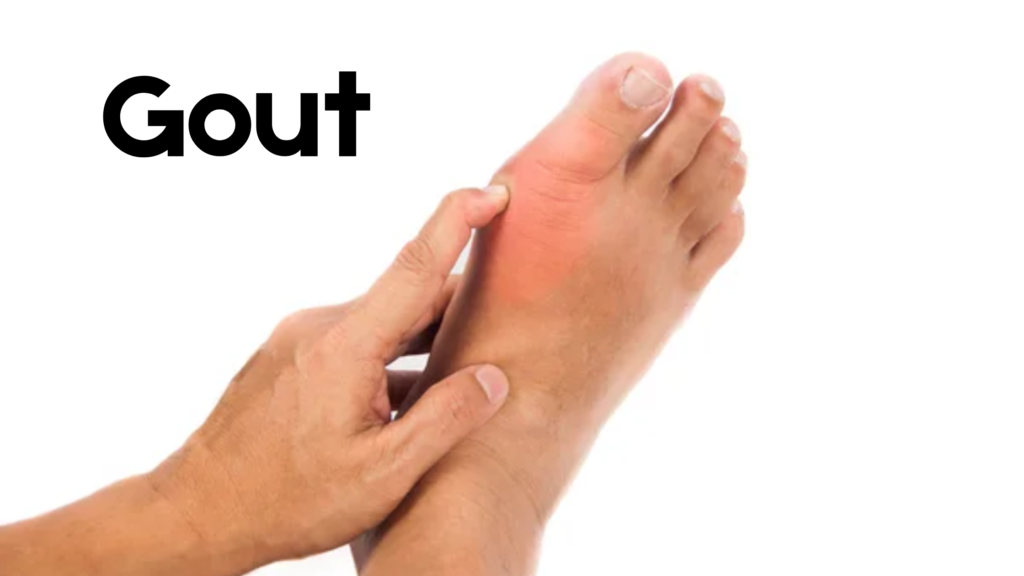What is Gout?
Gout is a type of arthritis caused by the buildup of uric acid crystals in the joints. This buildup causes sudden, intense pain, swelling, and redness—often starting in the big toe but it can affect other joints too.
Causes:
- High uric acid levels in the blood (hyperuricemia)
- Uric acid crystals deposit in joints and cause inflammation
- Risk factors include:
- Eating foods high in purines (red meat, seafood, alcohol, especially beer)
- Obesity
- Certain medications (diuretics, aspirin)
- Kidney problems reducing uric acid excretion
- Genetics and family history
Symptoms:
- Sudden, severe joint pain (often at night)
- Swelling, redness, warmth around the joint
- Limited movement due to pain
- Attacks last from days to weeks
- Joints can feel normal between attacks
Diagnosis:
- Joint fluid test to find uric acid crystals
- Blood test for uric acid levels
- Imaging like X-rays or ultrasound to assess damage
Treatment:
During attacks:
- NSAIDs (like ibuprofen)
- Colchicine
- Corticosteroids
Long-term:
- Medications to lower uric acid (allopurinol, febuxostat)
- Lifestyle changes: diet, weight control, hydration
Prevention:
- Avoid high-purine foods and alcohol
- Maintain healthy weight
- Drink plenty of water
- Regular exercise
